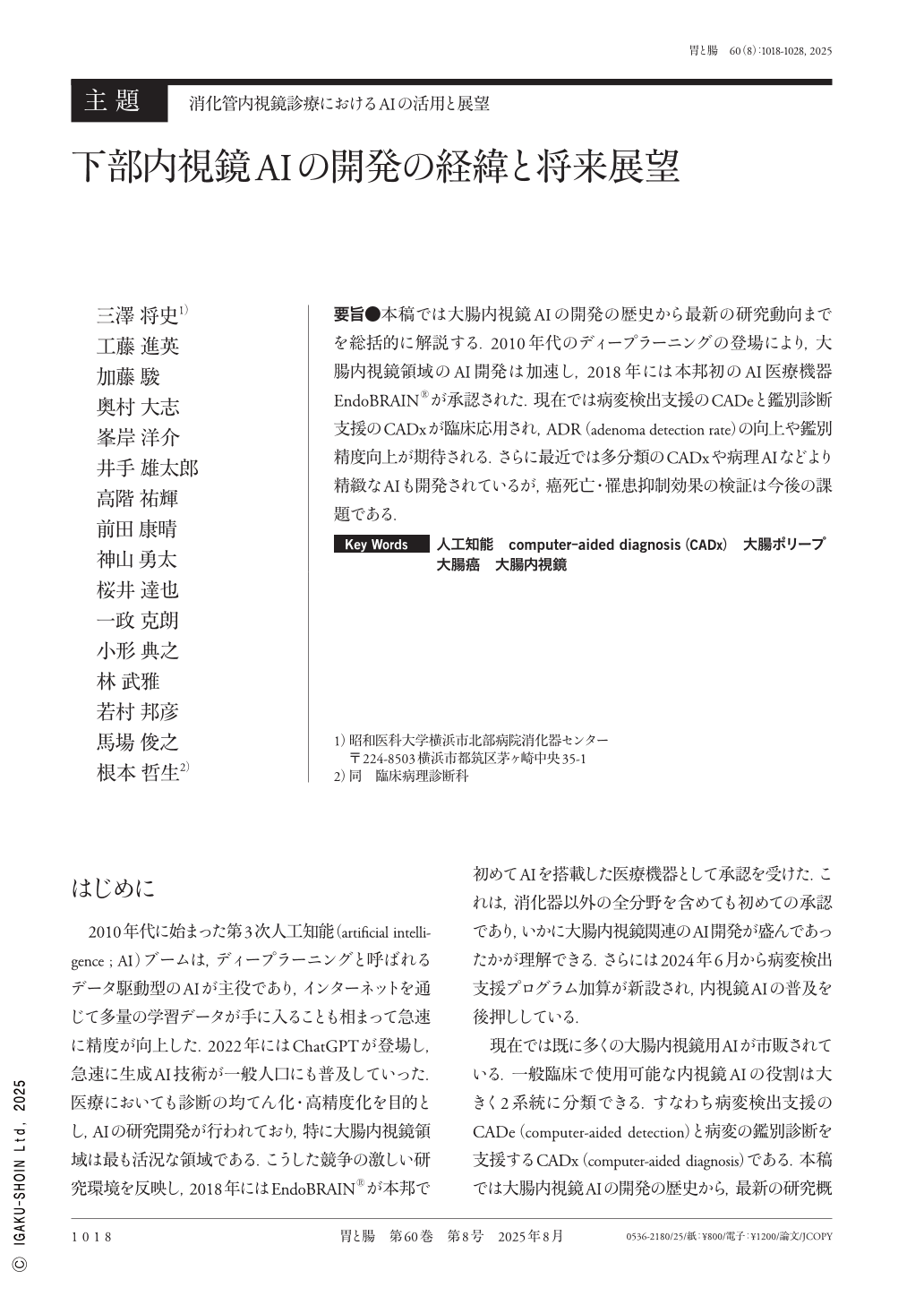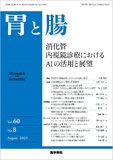Japanese
English
- 有料閲覧
- Abstract 文献概要
- 1ページ目 Look Inside
- 参考文献 Reference
要旨●本稿では大腸内視鏡AIの開発の歴史から最新の研究動向までを総括的に解説する.2010年代のディープラーニングの登場により,大腸内視鏡領域のAI開発は加速し,2018年には本邦初のAI医療機器EndoBRAIN®が承認された.現在では病変検出支援のCADeと鑑別診断支援のCADxが臨床応用され,ADR(adenoma detection rate)の向上や鑑別精度向上が期待される.さらに最近では多分類のCADxや病理AIなどより精緻なAIも開発されているが,癌死亡・罹患抑制効果の検証は今後の課題である.
This paper comprehensively reviews current research trends in the use of artificial intelligence(AI)in colonoscopy as well as the history of the development of AI-based medical devices. With the emergence of deep learning in the 2010s, the development of AI technologies in colonoscopy accelerated rapidly, leading to the approval of EndoBRAIN in 2018, which is Japan's first medical support software. Currently, computer-aided detection(CADe)systems that assist clinicians in lesion detection and computer-aided diagnosis(CADx)systems that support differential diagnosis are being clinically applied, contributing to the improved adenoma detection rates and accurate differentiation between neoplastic and non-neoplastic lesions. Recent advancements include the development of more sophisticated AI systems capable of identifying sessile serrated lesions and measuring lesion size. Multiple randomized controlled trials have demonstrated that CADe can increase the detection rates of adenomas, particularly diminutive adenomas, by approximately 10%, whereas CADx can achieve diagnostic accuracy comparable to that of expert endoscopists. However, the verification of the long-term effects of AI-based medical devices in reducing cancer mortality and incidence remains a challenge for future research. The regulatory pathway for these devices has also become more structured, facilitating the clinical implementation of new AI technologies in the field of endoscopy.

Copyright © 2025, Igaku-Shoin Ltd. All rights reserved.


